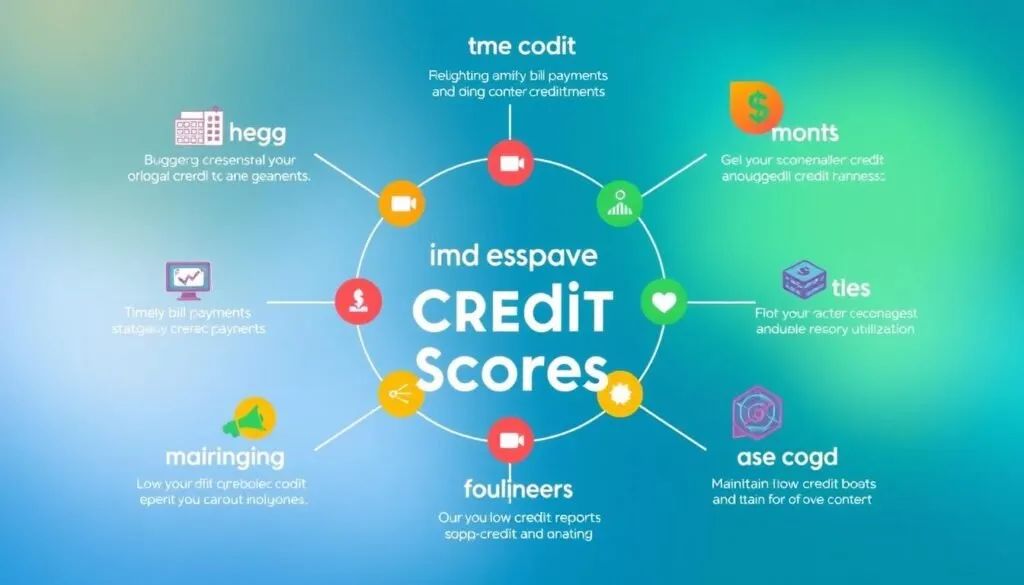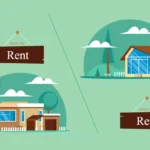Your credit score is one of the most important numbers in your financial life. It influences your ability to get loans, credit cards, favorable interest rates, rental agreements, and sometimes even jobs or insurance premiums. If your credit score is less than stellar, the good news is you can take steps to improve it—often faster than you might expect.
With 2025 bringing new financial trends and credit scoring updates, it’s crucial to stay informed and proactive. This article covers everything you need to know about how to boost your credit score fast in 2025—from understanding the basics to practical, actionable steps.
What Is a Credit Score and Why Does It Matter in 2025?
A credit score is a three-digit number, typically ranging from 300 to 850, that reflects your creditworthiness based on your credit report. The most commonly used credit scores are FICO and VantageScore.
Why Your Credit Score Is Important:
- Determines loan eligibility and interest rates
- Influences credit card approvals and limits
- Affects rental applications and housing options
- Can impact insurance premiums and employment chances
What’s New in 2025?
The credit scoring models are continually refined. For example, the FICO 10 and VantageScore 4.0 models now better account for factors like rent payments, utility bills, and even alternative data sources, helping more people build credit faster.
Understanding the Factors That Affect Your Credit Score
Before improving your score, you need to know what influences it:
| Factor | Weight (%) Approximate |
|---|---|
| Payment History | 35% |
| Amounts Owed (Credit Utilization) | 30% |
| Length of Credit History | 15% |
| New Credit / Recent Inquiries | 10% |
| Credit Mix | 10% |
1. Check Your Credit Reports Immediately
The first step is to get a copy of your credit reports from the three major bureaus: Equifax, Experian, and TransUnion.
- You can get one free report from each bureau annually at AnnualCreditReport.com.
- Review carefully for errors such as:
- Incorrect accounts
- Wrong balances or payment statuses
- Fraudulent activity or identity theft
- Dispute errors promptly through the credit bureaus’ websites.
2. Pay Down High Credit Card Balances
Credit utilization—the ratio of your credit card balances to your total available credit—is a critical factor.
- Aim to keep your utilization below 30% per card and overall.
- If possible, reduce it to below 10% for the fastest score boosts.
- Pay down balances aggressively: Even small payments can improve utilization quickly.
- Consider paying twice a month to keep balances low when reported.
3. Make All Payments on Time, Every Time
Your payment history accounts for 35% of your credit score—the biggest factor.
- Set up automatic payments or reminders to never miss a due date.
- If you have missed payments, catch up immediately.
- If you’re struggling financially, contact lenders to negotiate payment plans or hardship programs.
- Use apps like Mint or Credit Karma to track bills and credit status.
4. Avoid Opening Too Many New Accounts Rapidly
Each time you apply for credit, a hard inquiry is generated, which can temporarily lower your score.
- Limit credit applications to only when necessary.
- Space out new credit requests by at least six months.
- Avoid opening multiple credit cards or loans in a short span.
5. Increase Your Credit Limits Strategically
Increasing your credit limit can lower your credit utilization ratio, assuming you don’t increase spending.
- Contact your credit card issuers to request a credit line increase.
- Avoid asking for new cards; focus on increasing existing limits.
- Be cautious—some issuers may perform a hard inquiry, so ask if the request will affect your score.
6. Keep Old Accounts Open to Lengthen Credit History
The length of your credit history impacts 15% of your score.
- Even if you don’t use them often, keep older credit accounts open.
- Avoid closing your first credit card or oldest lines.
- Use dormant cards occasionally to keep them active without accumulating debt.
7. Diversify Your Credit Mix
Having different types of credit can boost your score, especially if managed well.
- Examples include:
- Credit cards
- Auto loans
- Mortgages
- Student loans
- Retail store cards
- However, don’t open new accounts just to diversify—only add credit types if it makes financial sense.
8. Use Tools Like Experian Boost or UltraFICO
New credit-building tools can help you improve your score fast by including additional data:
- Experian Boost: Adds your on-time utility, phone, and streaming payments to your Experian credit report.
- UltraFICO: Allows lenders to consider your banking history when calculating your score.
These tools can increase your credit score by 10-30 points or more instantly.
9. Pay Off Debt Strategically Using Debt Snowball or Avalanche Methods
- Debt Avalanche: Pay off debts with the highest interest rates first.
- Debt Snowball: Pay off smallest balances first to build momentum.
Both methods help reduce your debt and improve your score by lowering your credit utilization and showing responsible repayment.
10. Avoid Using Too Much of Your Available Credit at Once
Even if your monthly balance is paid on time, maxing out cards can hurt your score.
- Spread out your spending across cards if possible.
- Keep individual card utilization low to avoid red flags in scoring.
11. Consider a Secured Credit Card if Your Score Is Low
If you have a low or no credit score, a secured credit card can help build credit safely.
- Requires a cash deposit as collateral.
- Use it responsibly and pay in full monthly.
- Gradually, you can qualify for unsecured cards with better terms.
12. Become an Authorized User on a Trusted Account
If a family member or friend has excellent credit, ask if you can become an authorized user on their card.
- You benefit from their good payment history and credit age.
- Make sure the primary cardholder maintains good credit habits.
13. Avoid Closing Credit Cards Unless Necessary
Closing credit cards reduces your total available credit and can increase utilization.
- Only close cards with high fees or poor terms.
- Closing older accounts can also shorten your credit history length.
14. Limit Hard Inquiries to Protect Your Score
- Too many hard pulls in a short time signals risk.
- Mortgage and auto loan inquiries within a 14-45 day window usually count as one inquiry for scoring.
- Spread out other types of credit applications.
15. Keep Track of Your Credit Score Progress
Use free apps and services to monitor your score regularly:
- Credit Karma
- Experian
- Mint
- Most credit card issuers also provide free credit score access.
Tracking progress helps you stay motivated and catch errors early.
Common Myths About Credit Scores in 2025
- Checking your own credit hurts your score: This is false. Checking your own credit is a soft inquiry and does not affect your score.
- Closing old cards improves your score: Usually false. Closing cards can hurt by reducing credit available and shortening history.
- Paying off debt removes it from your credit report: False. Paid debts stay on reports for years but are marked as paid, which is positive.
- Carrying a balance improves your score: False. Carrying a balance unnecessarily just costs interest and does not improve scores.
Bonus Tips: What NOT to Do When Boosting Your Credit Score
- Don’t miss payments—even one late payment can significantly damage your score.
- Avoid payday loans or high-interest short-term credit—they can worsen credit and financial health.
- Don’t open many new credit accounts simultaneously.
- Avoid co-signing loans without full understanding of responsibility.
- Don’t ignore credit card statements or credit monitoring alerts.
The Timeline: How Fast Can You Improve Your Credit Score?
- Immediate improvements: Disputing errors and using Experian Boost or UltraFICO can increase scores within days.
- Short term (1-3 months): Paying down credit card balances and making all payments on time show results quickly.
- Medium term (3-6 months): Reducing debt, keeping accounts open, and limiting inquiries show steady improvement.
- Long term (6-12 months+): Building a strong payment history and diversifying credit mix lead to sustained high scores.
Tools and Resources to Help Boost Your Credit Score
- AnnualCreditReport.com – Free credit reports from all 3 bureaus.
- Experian Boost – Add utility and phone payments.
- Credit Karma – Free credit score tracking and personalized tips.
- NerdWallet Credit Score Guide
- FICO Credit Score Simulator
Final Thoughts: Your Credit Score Is Your Financial Passport
Boosting your credit score fast in 2025 is achievable if you understand how scores are calculated and apply proven strategies consistently. From paying bills on time to managing credit utilization, every small step counts toward building stronger credit.
Start by reviewing your credit reports today, set up automated payments, and reduce your debts strategically. The sooner you begin, the faster your score will improve—opening doors to better financial opportunities and lower borrowing costs.
Remember, improving credit is not just about numbers—it’s about creating healthy financial habits that benefit you for a lifetime.
🎁 Want a Surprise?
Click here to get redirected to a random post


